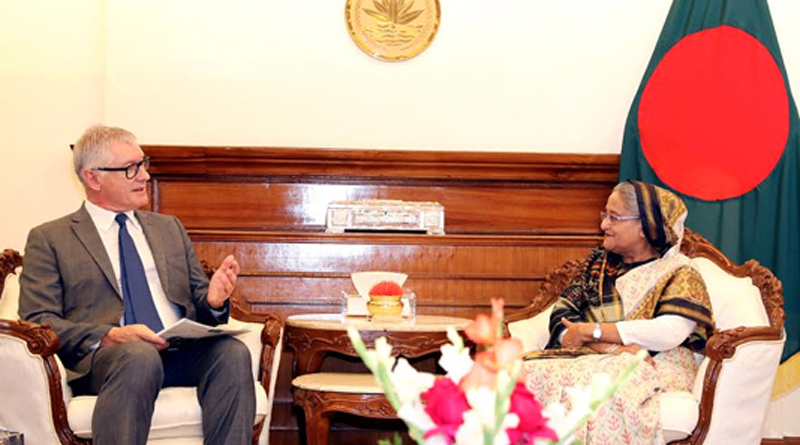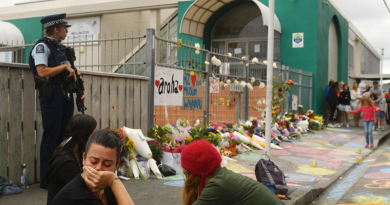PM for strengthening IRRI-BRRI collaboration to boost rice production
Prime Minister Sheikh Hasina today underscored the need for strengthening collaboration between the International Rice Research Institute (IRRI) and Bangladesh Rice Research Institute (BRRI) for further boosting rice production in the country.
“We hope that the IRRI and BIRI will enhance their collaboration to increase rice production in Bangladesh further,” the premier told IRRI Director General Dr Matthew Morell who paid a courtesy call on her at her office in the city.
PM’s Speech Writer Md Nazrul Islam briefed reporters after the meeting.
The prime minister appreciated the existing cooperation between the IRRI and BRRI.
She stressed the need for strengthening research work to invent saline, cold and draught-tolerant varieties of rice at larger scale and improve deepwater-tolerant rice varieties.
The premier also put emphasis on raising the production of rice in the country continuously as the demand of the main staple food is increasing while the arable land is declining day by day.
“Our farmers are very smart and quick learners. They can easily adopt technology,” Nazrul quoted the prime minister as saying.
Talking about crop pattern, Sheikh Hasina said Bangladesh cultivates wheat, maize, pulse and other crops in the northern region, which need less water.
The premier asked the authorities concerned to boost rice production in the southern region.
She stressed the need for increasing use of surface water reducing dependency on underground water in the irrigation to protect the environment from degradation.
So, the country’s water bodies including rivers, canals and beels are being re-excavated to facilitate irrigation, she added.
IRRI Director General said the IRRI is keen to take a collaborative programme with the BRRI to increase the rice production of Bangladesh.
Apprising the premier of a 14-point action plan adopted by IRRI under the collaborative programme, he said if the action plan is implemented, Bangladesh will be able to go on high growth in rice production and sustain the country’s food security.
The action plans include increasing production in Aush areas, inventing varieties of Amon crops, increasing boro production overcoming stagnancy, making hybrid rice suitable for local environment through research and introducing nutritious and healthy rice in Bangladesh.
The other action plans include inventing cold-tolerant boro variety for Haor areas to protect crops from flash flood, working on saline-tolerant varieties for coastal areas, overcoming harvesting and seed problems, enhancing mechanization to reduce production cost, inventing climate changes-resistant varieties, shifting cropping pattern of the northern region to the southern regions and quick dissemination of technology to farmers.
Dr Matthew said IRRI is interested to work on this action plan in a partnership with BRRI.
In this regard, the prime minister appreciated the action plans.
Agriculture Minister Dr Abdur Razzaque, PM’s Adviser Gowher Rizvi, PMO Secretary Sajjadul Hasan, Agriculture Secretary Md Nasiruzzaman, BRRI Director General Dr Md Shahjahan Kabir, IRRI Representative for South Asia Dr Nafees Meah and IRRI representative for Bangladesh Dr Humnath Bhandari were present at the meeting.
The IRRI is an independent, non-profit, research institute founded in 1960. The Philippines-based institute has offices in 17 rice-growing countries, including Bangladesh, in Asia and Africa.



